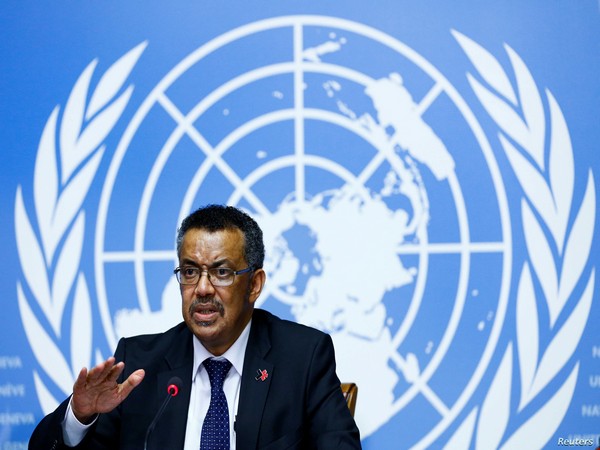WHO chief, Taliban delegation discuss 'dire' health crisis in Afghanistan
World Health Organization (WHO) chief Tedros Adhanom Ghebreyesus on Wednesday said that he met the 10-member Taliban delegation headed by health minister Qalander Ebad and discussed the "dire" health and humanitarian crisis in Afghanistan.

Geneva [Switzerland]: World Health Organization (WHO) chief Tedros Adhanom Ghebreyesus on Wednesday said that he met the 10-member Taliban delegation headed by health minister Qalander Ebad and discussed the "dire" health and humanitarian crisis in Afghanistan.
WHO chief revealed that he met Ebad for talks on Tuesday to discuss the status of humanitarian assistance to Afghanistan, reported The Khaama Press.
Ebad is part of a Taliban delegation visiting Geneva for a week of talks with institutions and non-governmental agencies on humanitarian access and human rights.
The visit happened following an invitation from Geneva Call, according to an Islamic Emirate spokesman.
Also Read |
Tedros refutes new Japanese coronavirus mutation more aggressive
Geneva Call said in a press release that the organization is hosting a restricted-access conference between February 7-11, which aims to enhance "unimpeded" delivery of humanitarian assistance to Afghanistan.
A spokesman for the Islamic Emirate said the Afghan delegation comprised of officials from the Ministries of Defense, Health, and Interior Affairs, reported Tolo News.
After the Taliban took control of Afghanistan last August, the country has plunged into financial chaos, with inflation and unemployment surging, while the halting of aid and US sanctions has triggered a humanitarian crisis in a country already devastated by decades of war.
Tedros had already met Ebad during his visit to Kabul in September 2021 in the wake of the Taliban takeover, reported The Khaama Press.
Also Read |
WHO DG urges to go after COVID-19 virus, not the vulnerable
"Despite some improvements since then, the health situation in Afghanistan is still dire and the acute humanitarian crisis is continuing to put lives at risk," Tedros said.
He said they discussed health needs in the country, strengthening the system, emergency preparedness, and training the health workforce, in which women are central.
"The acute need in Afghanistan is to deliver diagnostics to detect the COVID-19 virus, and in particular Omicron, as the number of cases is on the rise," Tedros said. (ANI)
 Dynamite News
Dynamite News 